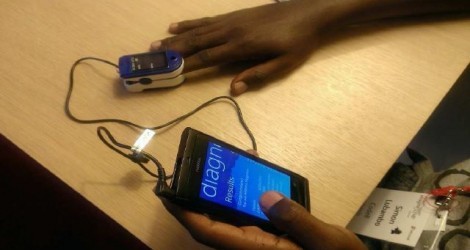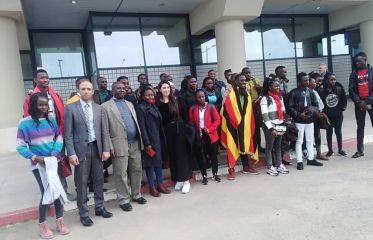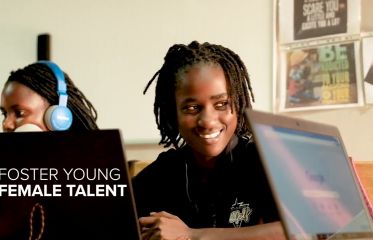Breaking News
- Flexible Remote Work Opportunity for University Students: Earn $100–$250 Per Month ...Read More
- Ministry of Education and Sports Azerbaijan Government Scholarships For 2025-2026 Academic Year ...Read More
- Government Sponsorship Undergraduate Admission Lists 2025-26 for Makerere University ...Read More
- Ministry of Education And Sports: Egyptian Government Scholarships 2025-2026 Academic Year ...Read More
- Ground Breaker Full Scholarship for girls to study Software Engineering 2025 July Intake ...Read More
- Tony Elumelu Foundation Entrepreneurship Programme (TEEP) 2025 for young African Entrepreneurs ...Read More
- DESIGNING FUTURES 2050 International Design Competition 2025 (€15,000 prize) ...Read More
- Ground Breaker Full time Scholarship for girls to study Software Engineering 2025 Intake ...Read More
- Ministry of Education And Sports Algerian Vocational Training Scholarships for 2024-2025 AY ...Read More
- Ministry of Education and Sports Advert for the Algerian Government Scholarships for 2024-2025 ...Read More
Matibabu: A bloodless way to test for Malaria

A couple of times we can across the proverb that goes “necessity is the mother of innovation” but from the great number of innovation that have come through due to the need, the above is more than a proverb but rather the rationale behind innovation
The major question that everyone making it through school that they should ask themselves is “What I am I adding to the prevailing tool of knowledge” Well Brian Gitta and his team responded boldly to that question by inventing a Malaria testing application that uses light to test for malaria other than the traditional way of drawing blood from a patient. The Innovation that they later called Matibabu
The Birth of Matibabu
When Gitta contracted malaria in 2012, he had already been admitted to hospital with the disease numerous times since childhood. He envisioned a “mobile medical Centre” to offer a quick, painless test to diagnose the disease without the long waiting times, common in state hospitals.
In an interview with EHN, Gitta explained that many people in Uganda have had malaria. “I was two or three years old when I first contracted it,” said Gitta. Following his vision, Gitta enlisted the help of his Makerere University (MU), IT peers, Josiah Kavuma, Simon Lubambo and Joshua Businge also known as Team Code 8, to develop the solution.
How it Works
Initially, Gitta and his team developed the app for Windows that works together with a custom portable finger Matiscope to rapidly diagnose malaria.
Patients place their finger inside the Matiscope where a red light contacts the skin and detects red blood cells. Lead Developer, Josiah Kavuma said, “It’s been shown that infected red blood cells have a different physical, chemical and biomedical structure from a normal red blood cell, hence we used light-scattering technology to determine the scatter patterns of both normal and infected cells.”
Watch the Video below to get a more detailed understanding of how it works
Gitta went on to explain that test results can be delivered in as little as 15 minutes and will cost around $20 for both the app and Matiscope – drastically reducing the time, cost and medical consumables that normal blood test for malaria incur.
 Components that make up matibabu
Components that make up matibabu
Social Impact of the Innovation
Gitta also sees the social impact that the app and Matiscope can deliver when used in remote, rural settings and outlined “the potential value of reduced socio-economic costs of the disease for 300-500 million people.” The app has won the attention of a number of organizations, including the Director of SAS Clinic in Uganda, Moses Kizito who said: “With this test people may be able to avoid a doctor’s consultation and treat malaria in its early stages before it causes anaemia and brain damage. Once this app comes out, the impact’s going to be great.”
Partnerships and Awards
Matibabu has been funded by USAID resources such as the Higher Education Solutions Network, the Resilient Africa Network, the Microsoft DreamSpark programme and Makerere University teaching hospital, Mulago Hospital.
In 2013, Matibabu won the Microsoft Inaugural Women’s Empowerment Award– Imagine Cup for best addressing issues that impact women globally. Matibabu has also made the top 10 Malaria apps list.
Challenges
Despite funding and global accolade, one of Matibabu’s challenges is that there aren’t many people with the right skills set to develop the components locally. Currently, Gitta and his team are refining the prototype to meet the standards for use and optimize its functionality. Gitta said, “During the second quarter we will do large scale testing that go through approvals and once complete we will launch the app to health services.”
Future Plans
Gitta explained that they will also launch the app to consumers as a way to self-test for the disease and they also want to partner with Organizations such as WHO to distribute the technology as a non-mobile dependent and dedicated device to combat malaria.
Source * http://ehealthnews.co.za/malaria-test/
Top Courses Currently Admitting
-
Diploma in HIV/AIDS Education and Management
Nkumba University
-
Bachelor of Arts in Economics and Statistics
Kyambogo University
-
Bachelor of Science Accounting & Finance
Ndejje University
-
Bachelor of Science Agriculture with Education.
Ndejje University
-
Bachelor of Science in Surveying and Land Information System
Kyambogo University






























